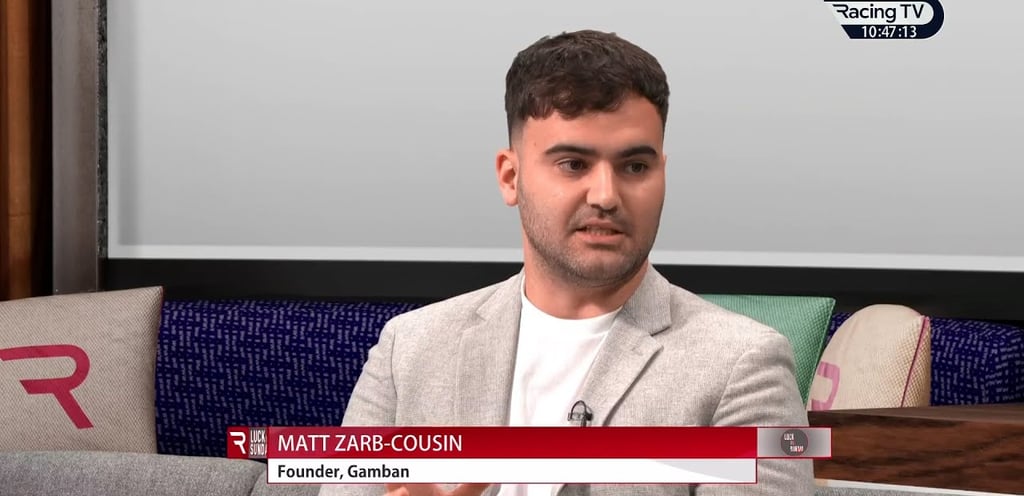The BHA’s Amnesia Act: How Racing Managed to Forget Its Own Warning
Because if they were truly blindsided, that suggests an almost heroic level of self-delusion. More likely, they assumed that with enough lobbying, surveys, and political manoeuvring, they could kick affordability checks into the long grass
HORSE RACINGGAMBLING
Ed Grimshaw
2/24/20253 min read


If there were an Olympic event for selective memory, the British Horseracing Authority (BHA) would be draped in gold, standing proudly on the podium of wilful ignorance. At the beginning of 2024, Jack Barton of the BHA issued a stark warning about the looming impact of affordability checks on racing’s finances. His blog laid it all out—the likely drop in betting turnover, the flawed government estimates, the risk of overregulation throttling the sport’s revenue streams.
And yet, here we are in 2025, watching the industry clutch its pearls as though a asteroid has unexpectedly struck early. The sheer shock! Who could have possibly foreseen this? Well, Jack Barton, for one. But apparently, even the BHA has managed to forget that it knew this was coming. They even suggested it would cost racing £900M in turnover.
Julie Harrington’s Masterplan: The Invisible Blueprint
Ah yes, Julie Harrington. The former BHA Chief Executive was heaped with praise upon her departure, lauded for her “long-term strategy” to safeguard racing’s financial future. Wonderful stuff. Just one minor issue—nobody seems to have actually seen this document. It exists in the same way the Loch Ness Monster exists: widely spoken about, never verifiable, and highly convenient when needed for PR purposes.
One might have assumed that this great strategic roadmap would have anticipated the affordability check debacle and outlined a clear, calculated response. Instead, it appears to have been scribbled in invisible ink and promptly filed in a very deep drawer somewhere in High Holborn.
Racing’s Bold New Plan: Beg the Anti-Gambling Lobby for Mercy
And now, in an irony so thick you could spread it on toast, the racing industry finds itself quietly hoping that the anti-gambling lobby—yes, the very people they spent years fighting—might come to their rescue. There’s something almost poetic about it. Having mounted such feeble resistance to affordability checks, the industry has become so passive that even those who wanted tougher regulations are reportedly surprised at the lack of opposition. Perhaps the anti-gambling lobby is even starting to feel sorry for racing, like a cat playing with a mouse that has simply given up and is now lying flat on the carpet, accepting its fate.
Racing’s current position could be summed up as follows:
Fight against affordability checks? Not really.
Present an alternative, workable solution? No, that would require effort.
Appeal to public and political sympathy for a bailout? Absolutely.
This is less of a defence of an industry and more of a helpless whimper in the hope that someone else fixes the mess. At this rate, the next great strategy from the BHA will involve leaving out a saucer of milk for the Gambling Commission and hoping they take pity.
The Industry’s New Favourite Emotion: Surprised Victimhood
For years, racing insisted that affordability checks were an existential threat. Yet, when the time came to really challenge them, what did we get? Some strongly worded letters, a petition, and an air of quiet resignation. The industry acted like it was going to storm the Bastille, only to settle for gently knocking on the door and asking if they might possibly reconsider.
Now, with betting turnover plummeting and racing’s finances looking rather bleak, the industry has transitioned into Surprised Victim Mode™—an old favourite in British governance. How could this happen? Why weren’t we warned? Surely this isn’t our fault? All excellent questions, all of which could have been directed at their own offices 12 months ago.
The BHA has not fully addressed the worries of punters, as voiced by groups like the Horseracing Bettors Forum (HBF). Punters are concerned about the intrusiveness of affordability checks and the potential push toward unregulated black market betting. Despite these issues being raised—such as in a 2023 survey showing 73% of bettors might turn to the black market if more personal data is demanded—the BHA’s primary focus has been on securing levy funding rather than advocating for punter-friendly solutions, and so far zero progress, no deal done, the bookmakers playing Trump like politics with the sport.
Where Next? The Race to Blame Someone Else
Now that the industry has realised its mistake, the question is: who will it blame?
The government? A solid choice, but ministers will point to the BHA’s own lack of resistance.
The bookmakers? Tempting, but they were the first to sound the alarm.
The anti-gambling lobby? Ironic, given that racing is now hoping they’ll be the ones to lobby for softer checks.
Perhaps the final twist in this saga is that the only people left defending racing are those who once wanted to curb gambling the most. And if they don’t, well, there’s always Plan B: another press release about Julie Harrington’s great invisible strategy or the posturing from the BHA reps pretending to find a solution with nothing concrete only pointless warnings to a government just as passive.
Reference: Barton, J. (2024). The Gambling Review so far – a BHA Blog. British Horseracing Authority. [Link to source]
